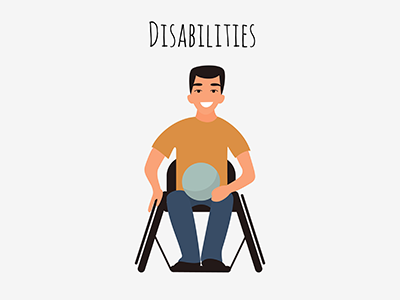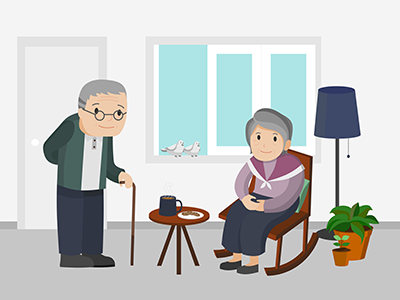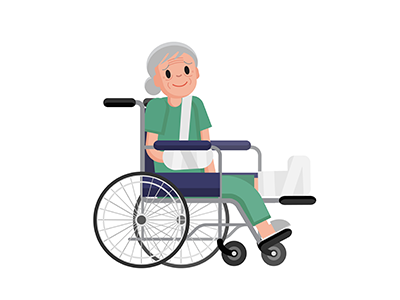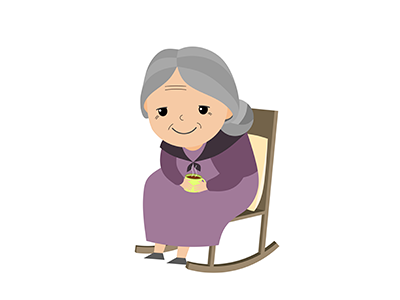6 Common Misconceptions about Adult Protective Services
Adult Protective Services (APS) inspires hope with vulnerable adults by engaging and partnering with the individual, family, and community to ensure self-determination, safety, independence, and highest quality of life. Because APS serves adults, the choice to accept services rests upon the individual, unless they are in immediate danger to themselves or others.
- Vulnerable adults are always elderly.

A vulnerable adult is defined as someone who is 18 years of age and older and unable to protect themselves from abuse, neglect or exploitation by others because of a physical or mental impairment. This includes someone with a developmental disability. Someone 65+ isn’t automatically a vulnerable adult simply because of their age.
- Self-neglect isn’t considered maltreatment.

Maltreatment is defined as abuse, neglect and exploitation. Friends and family may neglect vulnerable adults, but self-neglect is also a form of neglect. Self-neglect is an adult’s inability to perform essential self-care tasks due to physical or mental impairment. Self-neglect is considered maltreatment and is the most common form of maltreatment in Arizona.
- Physical abuse is the most common form of maltreatment.

In State Fiscal Year (SFY) 2018, APS investigated 5,801 allegations of self-neglect, making it the number one investigated allegation. Signs of self-neglect can include poor personal hygiene, poor medication management or refusing to take medication, or living in unsanitary living conditions.
- Vulnerable Adult maltreatment is committed mostly by strangers.

In Arizona, family members are the most common perpetrators of maltreatment (excluding self-neglect). Only 19% of cases in SFY 2018 were committed by strangers.
- If a report is filed, APS will remove the adult from the home.

APS does not have statutory authority to take custody of adults or control of their assets. If a person needs assistance that can be offered in the home (meals on wheels, medication management, etc.), this is done first before exploring facility placement options. The goal is to keep the person in the least restrictive environment as possible, which is often their own home.
- The alleged perpetrator will be arrested.

APS works closely with other agencies including law enforcement. If it is believed that maltreatment rises to the level of a crime, local law enforcement is notified. Through a local law enforcement criminal investigation, an alleged perpetrator could be arrested. After the arrest, prosecution is determined by the Attorney General’s Office, or local county and/or city prosecutors. APS conducts a civil investigation and places the alleged perpetrator on the Adult Protective Services Registry if the findings are substantiated.
By Isabella Neal

